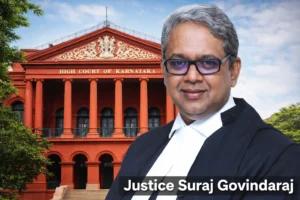In a significant judgment, the Supreme Court has condemned the growing practice of obtaining anticipatory or regular bail by voluntarily offering large sums of money and later challenging such conditions as excessive or unauthorised. The Court said that this strategy undermines the sanctity of the judicial process.
Read also: SC Quashes Madras HC Arrest Order Against Tamil Nadu ADGP; Probe Now Handed Over to CB-CID
A bench of Justices KV Vishwanathan and N Kotiswar Singh said, "We strongly condemn this practice… We cannot allow the parties to play a trick with the Court. We cannot allow the parties to take advantage of any means adopted by them to obtain orders of release."
The court highlighted that this trend is becoming "common", especially when parties claim that their counsel was not entitled to give financial deposit, or the condition imposed was too stringent. It warned that such attempts prevent high courts from examining bail applications on their merits.
Read also: UP Gangsters Act cannot be used as a tool of harassment: Supreme Court
"There can be no dispute that excessive bail is no bail and stringent conditions should not be imposed. What is disturbing is when an attempt is made to prevent consideration of bail applications by voluntarily giving deposit and later retracting," the court said.
The case before the Supreme Court involved an accused under the CGST Act, who was arrested on March 27, 2025 for alleged tax evasion of ₹13.7 crore. During the bail hearing in the Madras High Court, the counsel for the petitioner claimed that ₹2.8 crore had already been deposited and an additional ₹2.5 crore would be deposited without prejudice.
Read also: Indian Constitution: A Revolutionary Tool for Social Transformation, not Just Governance - CJI BR Gavai
Accepting this statement, the High Court granted bail with a direction to deposit ₹2.5 crore, including a condition to deposit ₹50 lakh immediately. Later, the Court modified the order to allow the deposit after release, but warned that non-payment would result in dismissal of the bail application.
Challenging this before the Supreme Court, the petitioner claimed that such conditions were too stringent and his counsel had no authority to offer the deposit.
However, the Supreme Court pointed out that no such statement was made in the petitioner's application for modification.
"If the monetary deposit had not been offered initially, the high court would have considered the matter on merits… Today, the petitioner is approving and refuting. We are mindful of his rights under Article 21, but we have to be equally mindful of the sanctity of the judicial process," the bench said.
Initially, the Supreme Court set aside the high court order directing the petitioner to surrender within a week and remanded the matter back to the high court for fresh consideration. However, taking into account humanitarian grounds, such as his pregnant wife and aged father, the court allowed interim bail on payment.
Appearance: Senior Advocate V Chidambaresh and AoR Aswathi MK (for petitioner)
Case Title: KUNDAN SINGH Versus THE SUPERINTENDENT OF CGST AND CENTRAL EXCISE, SLP(Crl) No. 9111/2025















